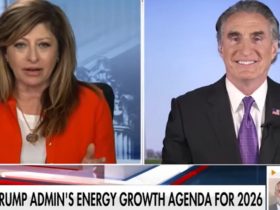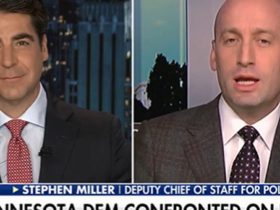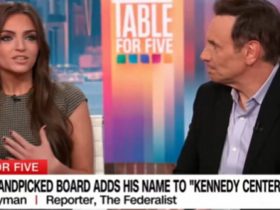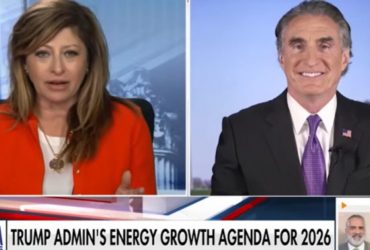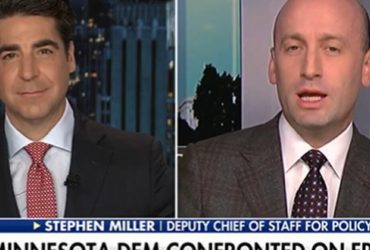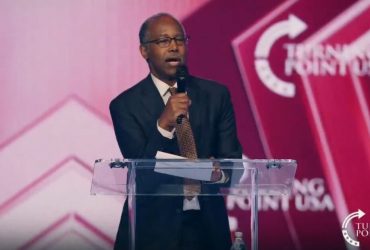Image: Courtesy of @ArtBurnDesigns
Is there a criminal enterprise of regulators, market participants, and politicians weaponizing U.S. capital markets for power, political agendas, and election interference?
During her 2016 presidential bid, Hillary Clinton’s campaign commissioned the now-discredited Steele Dosier which launched the Russia collusion hoax. This deception was clearly an effort to derail Donald J. Trump’s presidential bid and cripple his presidency. While the accusations against Trump were debunked, it continues to fuel the flames of long-standing political rivalries that rage today.
Julianne Jay, a fair market activist and $MMTLP shareholder, spoke to The Gateway Pundit, and identified Gary Gensler as one of the players in that campaign “with deep and long-standing ties to the democrat machine.” The former Goldman Sachs investment banker was nominated by former President Barack Obama as Chair of the Commodity Futures Trading Commission (CFTC) in December 2008.
In 2016, Gensler served as Chief Financial Officer (CFO) of the Hillary Clinton presidential campaign. Most notably, President Biden nominated Gensler as the powerful Chairman of the U.S. Securities and Exchange Commission (SEC), a position where he has reigned since April 2021. Considering his role as CFO for Clinton, many suspect Gensler may have facilitated payment for the fabricated Steele Dossier that linked Donald Trump to Russia.
Might Gensler be a thorn in the side of Trump’s candidacy for a second time?
According to Jay, Devin Nunes, the former Republican Congressman and American businessman, seems to agree. He spoke to award-winning investigative journalist John Solomon regarding the unusual trading activity of $DJT, “I have run a lot of investigations. This one smells just as dirty as all the other investigations that I have had to run into government malfeasance here. I think there is a lot of bad actors here.”
While serving as Ranking Member of the House Permanent Select Committee on Intelligence, Nunes resigned from Congress effective January 2022. Shortly after, he became Chief Executive Officer (CEO) of Trump Media & Technology Group (TMTG), a business venture conceived after the former president was banned from Twitter (now X) in January 2021. In a statement to The Guardian, the staunch Trump ally said, “The time has come to reopen the internet and allow for the free flow of ideas and expression without censorship.”
Digital World Acquisition Corp. (DWAC) was founded in September 2021 as a special purpose acquisition company (SPAC) listed on the NASDAQ stock exchange for the purpose of raising funds to acquire a private company, making them public. In October 2021, DWAC announced a definitive merger agreement with TMTG. According to its website, TMTG sought to establish Truth Social as “America’s ‘Big Tent’ social media platform that encourages an open, free, and honest global conversation without discriminating on the basis political ideology.” After the merger with DWAC, TMTG has traded under the ticker $DJT since March 2024.
It was not an easy path for $DJT to get to the NASDAQ. “DWAC and the merger with TMTG were plagued with accusations of dubious ties to Chinese funding groups, insider trading, skirting of securities laws, and numerous regulatory delays,” Jay shared. She continued, “As soon as DWAC announced the intent to merge with TMTG in October 2021, Gensler’s SEC and Financial Industry Regulatory Authority (FINRA) immediately targeted them for investigations.”
What drew the regulators’ attention? DWAC had only traded for a few weeks. They had just passed through the rigorous regulatory scrutiny involved with an initial listing and offering on a national securities exchange. Was it Trump’s connection to TMTG? Jay offered. What role if any did Chair Gensler play in the SEC investigation and settlement of the accusations for $18 million? she asked. “In light of the players involved, those questions should be investigated. Two things can be right at the same time,” the fair market activist asserted.
“It seems like former commodities trader, Chair of the House Intelligence Committee and current CEO of TMTG Devin Nunes agrees,” Jay noted. According to his interview on Just the News in May 2024, Nunes indicated that this [naked shorting, failures to deliver] is “something that I should have looked at when I was in Congress. It appears like it has been happening for a long time, but it shouldn’t be happening in this country … maybe we are going to expose something that is bigger than most of us can imagine.”
“Something bigger?” Jay asked. “For me and the $MMTLP investor community, it is clear why he attached our congressional open letter signed by 74 congressmen to his correspondence with Congress.” Unlike $DJT, which still trades, $MMTLP was halted in December 2022.
Jay pointed out, “Everything that Nunes claims regarding the criminal manipulation of his stock, happened in $MMTLP, by many of the same bad actors.” According to her, “The huge difference is our evidence is frozen in time, ready for the plucking.” If the same “bad actors” are involved with both tickers, she questioned, could Gensler be refusing transparency for $MMTLP investors for political motives?
“The difficult journey getting $DJT to the market was just the beginning of the very rocky road ahead for the social media newcomer,” she said. After the ticker had been trading for only a few weeks, Nunes filed a letter to NASDAQ’s CEO Adena T. Friedman on April 18, 2024. In his first of many letters, Nunes expressed concern over excessive failures to deliver and requested transparency.
As previously published by The Gateway Pundit, “Investors and CEOs at War with Regulators Over ‘Counterfeit Shares’” Jay explained that “failed transactions, also known as Failure-To-Delivers (FTDs), occur when buy or sell orders fail to complete, [and] when it comes to short selling, FTDs can occur when the short seller fails to provide locates for the shares they borrowed.” Persistent and excessive FTDs are a strong indication of illegal naked short selling, according to both Jay and Nunes.
“Naked short selling is a strategy used by market manipulators to drive the price of securities down by selling shares into the market they have not borrowed,” Jay explained, adding that “if the sellers fail to provide a locate to a borrow, which the regulations require them to do, they become FTDs.”
According to Money Watch, when TMTG traded publicly for the first time, Trump’s 60 percent stake was valued at $6 billon, and after a six-month lock-out period, his stake had fallen 71 percent to $1.7 billion. And Trump has yet to sell a share, Jay noted.
“During Trump’s lock-out period,” Jay said, “he was involved in multiple legal cases across several jurisdictions in both state and federal court.” Most notable is the ongoing New York v. Trump business fraud lawsuit which began in October 2023. “A judgement was delivered in the civil case, and Trump and other defendants were ordered to pay $364 million in disgorgement on ill-gotten gains,” Jay said, adding that “[New York State Attorney General] Letitia James moved to seize Trump’s New York properties if he did not pay the disgorgement in cash.” She suggested, “They were trying to bleed him dry in the courts and in the market.” For Jay, it begs the question: “Was it so he could not fund his own presidential campaign as he did in 2016?”
In his third correspondence with Congress, dated May 15, 2024, Nunes requested FINRA issue Electronic Blue Sheets (EBS) for various firms named as potential manipulators of $DJT. “At the top of that list is Citadel Securities,” Jay disclosed. Coincidentally, Citadel’s CEO, Ken Griffin, is a long-time political foe of Trump who funded Ron DeSantis and Nikki Haley’s 2024 Republican primary bids. After DeSantis dropped out of the race in January 2024, Trump secured the Republican nomination after his definitive primary defeat of Haley in March. And according to Jay, “Rumor has it that Citadel exited their short position in $DJT six months ago, [so] maybe Griffin decided he better make nice with the presumptive nominee after his attempts to defeat the former president by funding his primary challengers?”
Certainly, nothing can be proved without investigations and discovery—for which Nunes is uniquely skilled—and according to Jay, there are questions that need to be asked:
Are long standing Donald Trump’s political rivals weaponizing regulatory agencies and naked shorting to interfere in the 2024 presidential election?
Did Gary Gensler slow-roll the merger between DWAC and TMTG for political reasons at the behest of former president Obama and Hillary Clinton?
Did Ken Griffin target $DJT with short selling because of his disdain for Trump?
Why has Congress refused to launch any official investigations or public hearings into the market manipulation of $DJT and $MMTLP?
Are Nunes and President Trump using $DJT as a mechanism for exposing more of “The Swamp?”
Is Gensler’s SEC refusing transparency, because Trump, during his appearance at the Bitcoin 2024 Conference, stated he planned to fire Gensler on his first day in office?
Is this all coincidence or is it collusion?
“If the criminal enterprise is willing to go after a president and his companies,” Jay said, “there’s no doubt they think nothing of going after defrauded $MMTLP investors.” She concluded, “We are right here, almost 700 days, fighting for answers and exposing them, [and] we are not going away.”
The post Allegations of Election Interference: Illegal Short Attacks and the Regulators Who Enable Them appeared first on The Gateway Pundit.


